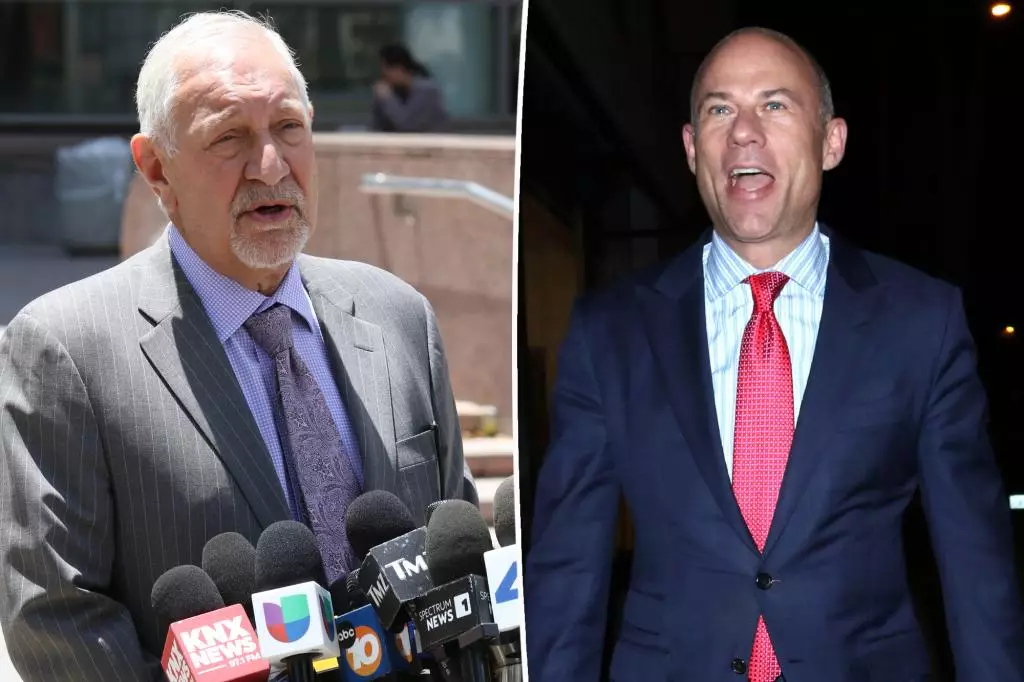In the high-stakes world of legal fame and influence, even the most revered attorneys are not immune to the consequences of ethical lapses. The recent court findings against Mark Geragos underscore a harsh reality: fame and courtroom success do not guarantee moral integrity. Geragos, a figure synonymous with high-profile cases involving celebrities like Michael Jackson and Chris Brown, found himself embroiled in a civil suit that stripped away the veneer of infallibility often associated with legal giants. His involvement, particularly his association with Michael Avenatti—a lawyer notorious for sensationalism and criminal conduct—serves as a cautionary tale about how even seasoned professionals can falter when operating in ethically grey areas.
When Power Corrupts Judgment
The heart of the controversy lies in Geragos’s alleged complicity in aiding Avenatti’s misconduct. The jury’s verdict explicitly indicated that Geragos not only knew about Avenatti’s wrongful actions but actively provided “knowingly substantial assistance.” This suggests a disturbing lapse in judgment and professional responsibility—raising questions about whether ambition and association can sometimes overshadow one’s moral compass. Geragos’s defense, claiming the verdict amounts to “vindication,” feels hollow when juxtaposed with the fact that a jury still held him liable for breaching his duty of loyalty. The implications here are profound: in the legal arena, ambition must never eclipse integrity, for the fallout is public, punitive, and reputational.
The Erosion of Trust in the Legal Profession
This case also spotlights a broader crisis—an erosion of trust in legal institutions. When celebrated attorneys are caught in scandals linked to unethical conduct, it fuels skepticism among the public. Geragos’s potential complicity in Avenatti’s schemes, especially in the context of the Nike blackmail and the civil suit linked to a failed payoff, reveals how easily legal professionals can become entangled in morally questionable deeds. Such instances threaten to diminish the credibility of the entire legal system, which relies heavily on adherence to ethical standards. Behind the courtroom victories often lie blurred lines, and the recent verdict serves as an overdue reminder that professional standards should never be compromised for personal or strategic gains.
The Irony of Celebrity and Justice
Ironically, Geragos’s case pivots on his proximity to celebrity culture—an environment often characterized by excess, ambition, and moral ambiguity. While many see lawyers like Geragos and Avenatti as figures who exemplify success, their stories reveal the shadows lurking beneath the glitz. Avenatti’s downfall—stemming from a scheme that included attempting to blackmail Nike and embezzling from clients—illustrates how the pursuit of fame and greed can distort core ethical principles. Geragos, by association, becomes a conduit for understanding how those principles can be compromised when personal ambition collides with legal responsibilities. It is a stark lesson: no matter how polished the outer veneer, unchecked power and influence are fertile ground for moral failure.
The Need for Genuine Accountability
In a profession that champions justice and moral clarity, the Geragos case underscores the necessity for genuine accountability. The civil verdict, despite Geragos’s assertions of “vindication,” sends a clear message: accountability is non-negotiable. Lawyers must recognize that their actions, especially when they involve aiding misconduct, carry consequences that extend beyond courtroom ethics—they impact public trust and the very integrity of the justice system. As the legal community scrutinizes itself, this case should serve as a catalyst for introspection and a reaffirmation of the ethical standards that should govern every action behind the legal podium. Power is fleeting, but credibility endures—those who forget this do so at their peril.

